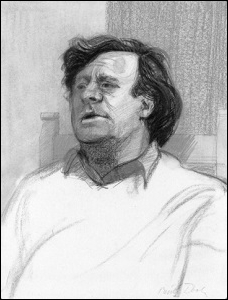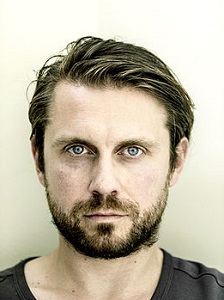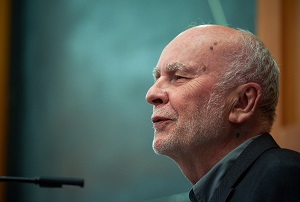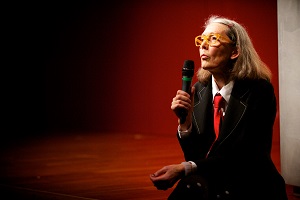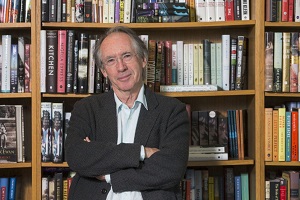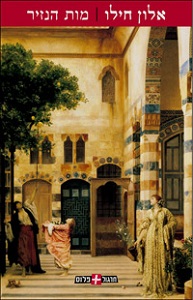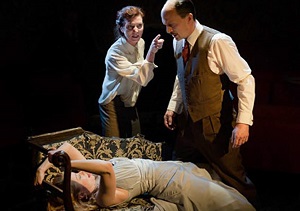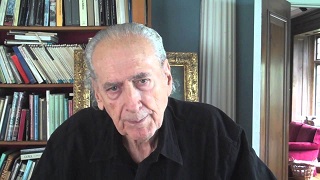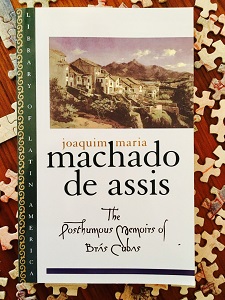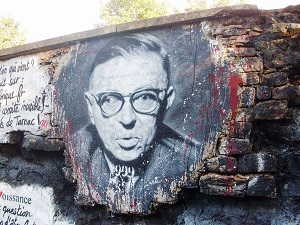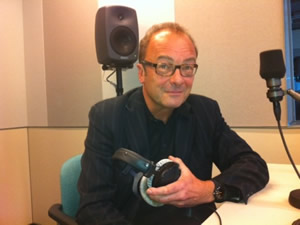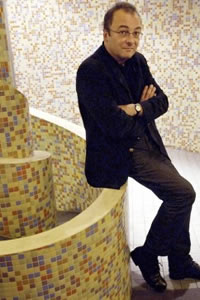De Nederlandse dichter Ed Leeflang werd geboren op 21 juni 1929 in Amsterdam. Zie ook alle tags voor Ed Leeflang op dit blog.
Vakantiekolonie
Dertien boterhammen had de jongen gegeten;
hij mocht boven tachtig kinderen op tafel staan
en keek gelukkig in het rond. De zuster zei
dat je ook zoveel moest eten; dan ging bronchitis over,
want dan kwam je aan.
Dat je van heimwee aandrang krijgt
stond denkelijk niet in de handboeken.
Niet eens misprijzend schept de zuster
een natte hoop uit je spijlenbed;
’s middags moet je tot je moe wordt rusten.
Later zit je naast haar op het strand –
ze leest en doodgaan is hier verboden –
je wil niet scheppen, de zandvormen
van thuis zou je hier liever willen missen,
het rondje, de groene, het hartje, de rode.
Niet ver uit de kust spelen, op en onder.
de scholen bruinvissen. Daar is ook de echte
geheimzinnigheid van mooi weer.
Alleen op een vage feestdag is
bezoek van besluitelozen toegestaan.
Waar zullen ze eens met je heen gaan.
Als ze je na zes weken halen,
ben je niet aangekomen, wel plat gaan praten.
Nog eens weken zijn ze daar ongemakkelijk van
en tonen zich bedrogen en ontdaan.
De hazen
We waren in een weitje waar camille
het meeste te vertellen stond en hadden
een paal voor een waslijn in de grond gezet,
toen twee hazen uit het jonge koren dansten,
rechtop bewegend, in een aangrijpend menuet.
Dat kinderboekenhazen bleken te bestaan –
ze droegen dan wel geen parmante jassen,
maar hadden die aandoenlijke en overduidelijke
oren aan – het was zo schokkend als midden in
de goedheid of in de oudste angst voor donker
zijn te komen staan.
De schaamteloosheid van hun rondedans
en de driftige ernst van hun door
plotselinge versteningen onderbroken spel
deden ons de eigen argwanendheid en
verloren natuurlijkheid beseffen, dat
voelden wij aan onze sprakeloosheid wel.
Het voorjaar leek zelfs dreigend uit den boze
over de onschuld van de polder heen te hangen.
De dans duurde zo’n traag kwartier;
er was nog een kort leven om te blozen,
om naar de schoonheid van dit drieste dansen
te verlangen.
De Vlaamse dichter, schrijver en journalist Thomas Blondeau werd geboren in Poperinge op 21 juni 1978. Zie ook Zie ook alle tags voor Thomas Blondeau op dit blog
Uit: De Vaderlander
“Zoals
mensen als maagd kunnen sterven, kunnen ze leven zonder ook maar één
keer onderdeel te zijn geweest van iets meeslepends. Dat hoeft niet
betreurenswaardig te zijn. Kijk maar naar kloosterlingen die hun mond
niet kunnen houden over het genot van de berusting. Michel Quispel, de
vader van David, behoorde tot het slag mensen dat niet mist wat het niet
kent. Na een mislukte rechtenstudie was hij een paar jaar
handelsreiziger geweest in schoonmaakmiddelen. Het stoorde hem om zo’n
weinig mannelijk product te slijten, maar hij hield ervan onderweg te
zijn. Om zijn aangeboren verlegenheid te overwinnen, begon hij bier te
drinken. Zijn beroep gaf hem volop gelegenheid om vaak in cafés te zijn.
Wanneer hij een goede voormiddag had gehad, begon hij na twaalven met
drinken.
Later
begon hij ongeacht zijn voormiddag na twaalven te drinken. Na het
overlijden van zijn vader verkocht hij diens kruidenierswinkel en begon
een café dat hij De Vaderlander doopte. Genoemd naar de zandzakjes die
in de Eerste Wereldoorlog de wanden van de loopgraven tegen instorting
beschermden. Hij was zo trots op deze vondst dat hij jarenlang nieuwe
klanten vermoeide met zijn uitleg over het café als een wal tegen de
wereld.
‘David, hebt ge tegen uw vriend al gezegd waarom uw vader zijn café zo genoemd heeft?’
‘Ja, pa.’
‘Ik bedoel niet waar het vandaan komt maar wat het symboliseert?’
‘Ja, pa!’
Eigenlijk
zag David zijn vader alleen ’s ochtends bij het tandenpoetsen een glas
water drinken. Zijn dictum was: ‘’s Ochtends koffie om de dag goed in de
ogen te kijken en ’s middags een pint omdat het gezicht van de dag u
niet aanstaat.’ Hij was een gestaag drinker die nooit tot dronkenschap
verviel.
Hij
leefde zogezegd op een respectabele afstand van de realiteit. Die
afstand hield de middelmatige kwaliteit van zijn café, huwelijk en zijn
relatie met zijn zoon op een constant niveau. Geen uitzicht op
verbetering maar ook geen kans op verslechtering. Zijn alcoholisme en
omgang met klanten had hem een welwillende onverschilligheid gegeven.
Een manier van omgang die bestond uit glimlachen en het minimum aan
inspanning om een conversatie gaande te houden. Een manier van omgaan
die hij ook op zijn leven en gezin toepaste. Hij het David, die goede
cijfers haalde zonder noemenswaardige inspanning, meestal zijn gang
gaan. Geheel volgens zijn weinig uitgedachte filosofie dat het leven een
stroom is waar je wel kunt proberen iets aan te veranderen, maar wat
over het algemeen een nutteloze activiteit is want water stroomt toch
altijd naar het laagste punt.”
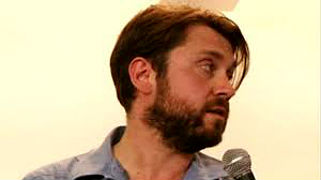
De Poolse dichter en essayist Adam Zagajewski werd geboren op 21 juni 1945 in Lwów, het huidige Lviv. Zie ook alle tags voor Adam Zagajewski op dit blog.
Night Is a Cistern
Night is a cistern. Owls sing. Refugees tread meadow roads
with the loud rustling of endless grief.
Who are you, walking in this worried crowd.
And who will you become, who will you be
when day returns, and ordinary greetings circle round.
Night is a cistern. The last pairs dance at a country ball.
High waves cry from the sea, the wind rocks pines.
An unknown hand draws the dawn’s first stroke.
Lamps fade, a motor chokes.
Before us, life’s path, and instants of astronomy.
Mysticism for Beginners
The day was mild, the light was generous.
The German on the café terrace
held a small book on his lap.
I caught sight of the title:
Mysticism for Beginners.
Suddenly I understood that the swallows
patrolling the streets of Montepulciano
with their shrill whistles,
and the hushed talk of timid travelers
from Eastern, so-called Central Europe,
and the white herons standing—yesterday? the day before?—
like nuns in fields of rice,
and the dusk, slow and systematic,
erasing the outlines of medieval houses,
and olive trees on little hills,
abandoned to the wind and heat,
and the head of the Unknown Princess
that I saw and admired in the Louvre,
and stained-glass windows like butterfly wings
sprinkled with pollen,
and the little nightingale practicing
its speech beside the highway,
and any journey, any kind of trip,
are only mysticism for beginners,
the elementary course, prelude
to a test that’s been
postponed.
Vertaald door Clare Cavanagh

De Canadese dichteres, essayiste en vertaalster Anne Carson werd geboren op 21 juni 1950 in Toronto. Zie ook alle tags voor Anne Carson op dit blog.
The Glass Essay
I
of the man who
left in September.
His name was Law.
My face in the bathroom mirror
has white streaks down it.
I rinse the face and return to bed.
Tomorrow I am going to visit my mother.
SHE
She lives on a moor in the north.
She lives alone.
Spring opens like a blade there.
I travel all day on trains and bring a lot of books—
some for my mother, some for me
including The Collected Works Of Emily Brontë.
This is my favourite author.
Also my main fear, which I mean to confront.
Whenever I visit my mother
I feel I am turning into Emily Brontë,
my lonely life around me like a moor,
my ungainly body stumping over the mud flats with a look of transformation
that dies when I come in the kitchen door.
What meat is it, Emily, we need?
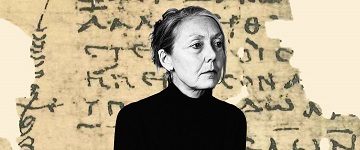
De Britse schrijver Ian McEwan werd op 21 juni 1948 geboren in de Engelse garnizoensplaats Aldershot. Zie ook alle tags voor Ian McEwan op dit blog.
Uit:Machines Like Me
“He
stood before me, perfectly still in the gloom of the winter’s
afternoon. The debris of the packaging that had protected him was still
piled around his feet. He emerged from it like Botticelli’s Venus rising
from her shell. Through the north-facing window, the diminishing light
picked out the outlines of just one half of his form, one side of his
noble face. The only sounds were the friendly murmur of the fridge and a
muted drone of traffic. I had a sense then of his loneliness, settling
like a weight around his muscular shoulders. He had woken to find
himself in a dingy kitchen, in London SW9 in the late twentieth century,
without friends, without a past or any sense of his future. He truly
was alone. All the other Adams and Eves were spread about the world with
their owners, though seven Eves were said to be concentrated in Riyadh.
As I reached for the light switch I said, ‘How are you feeling?’
He looked away to consider his reply. ‘I don’t feel right.’
This time his tone was flat. It seemed my question had lowered his spirits. But within such microprocessors, what spirits?
‘What’s wrong?’
‘I don’t have any clothes. And—’
‘I’ll get you some. What else?’
‘This wire. If I pull it out it will hurt.’
‘I’ll do it and it won’t hurt.’
But
I didn’t move immediately. In full electric light I was able to observe
his expression, which barely shifted when he spoke. It was not an
artificial face I saw, but the mask of a poker player. Without the
lifeblood of a personality, he had little to express. He was running on
some form of default program that would serve him until the downloads
were complete. He had movements, phrases, routines that gave him a
veneer of plausibility. Minimally, he knew what to do, but little else.
Like a man with a shocking hangover.
I
could admit it to myself now – I was fearful of him and reluctant to go
closer. Also, I was absorbing the implications of his last word. Adam
only had to behave as though he felt pain and I would be obliged to
believe him, respond to him as if he did. Too difficult not to. Too
starkly pitched against the drift of human sympathies. At the same time I
couldn’t believe he was capable of being hurt, or of having feelings,
or of any sentience at all. And yet I had asked him how he felt. His
reply had been appropriate, and so too my offer to bring him clothes.
And I believed none of it. I was playing a computer game. But a real
game, as real as social life, the proof of which was my heart’s refusal
to settle and the dryness in my mouth.”

Cover
De Israëlische schrijver Alon Hilu werd geboren op 21 juni 1972 in Jaffa. Zie ook alle tags voor Alon Hilu op dit blog.
Uit: Death of a Monk
“There were long-sleeved dresses adorned with feathers, and dresses ornamented with shiny beads and shells, and I would draw the choice cloths to my chest and inhale their fragrance, and when Maman was certain that no evil eyes were watching us, waiting to tell Father about our forbidden acts, she would remove the brooch pinning up her tresses in one swift motion, freeing her hair to flow to her waist, and then she would remove my tunic, momentarily fearful of my naked body dotted with the mysterious pores, and she would wrap me in an evening gown of her own choosing, a gown that covered my legs all the way to the toes and twisted around my arms and, in order to enhance the excitement, she would slip a pair of black, patent-leather shoes over my small feet with the disputatious toes, commanding me to sit upon her bed while she passed a variety of powders and coloured lotions over my face, after which I would stand before her glowing visage. Not a soul knew of the garments I would don from time to time, not even the servants toiling in our home. Once, only once, while we were under the mistaken impression that he was off somewhere tending to one of his numerous business concerns, Father returned home early. His shoes hammered the marble floor as he rounded the fish pond, while Maman rushed frantically to strip me of my gown and remove the spots of makeup, almost ripping the expensive fabrics from my body so that Father would not catch us in our misconduct, and when he entered and found me in the room, sitting upon his bed, he grabbed hold of me at once by the forearm and faced us, awaiting our explanation. She would not grant me the wink of an eye confirming our complicit secret, not even the quickest flash of mischief between conspirators: Maman rushed to inform him of my conduct during his absence, how I had come to her and bothered her and recited coarse poetry to her learned from the boys at the Talmud Torah, how I was uncouth and uncultured, more evil even than the wild Bedouin who plundered our caravans, and that my place was not in the pampering bedroom of my childhood, but in the prison dungeon beneath the Saraya fortress, seat of the governor of Damascus, where the cries of tortured prisoners could be heard each night.”
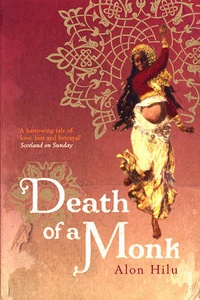
Cover
De Franse schrijver Jean Paul Sartre werd geboren op 21 juni 1905 in Parijs. Zie ook alle tags voor Jean-Paul Sartre op dit blog.
Uit: Le Mur
«
On nous poussa dans une grande salle blanche, et mes yeux se mirent à
cligner parce que la lumière leur faisait mal. Ensuite, je vis une table
et quatre types derrière la table, des civils, qui regardaient des
papiers. On avait massé les autres prisonniers dans le fond et il nous
fallut traverser toute la pièce pour les rejoindre. Il y en avait
plusieurs que je connaissais et d’autres qui devaient être étrangers.
Les deux qui étaient devant moi étaient blonds avec des crânes ronds,
ils se ressemblaient : des Français, j’imagine. Le plus petit remontait
tout le temps son pantalon : c’était nerveux.
Ça
dura près de trois heures ; j’étais abruti et j’avais la tête vide mais
la pièce était bien chauffée et je trouvais ça plutôt agréable : depuis
vingt-quatre heures, nous n’avions pas cessé de grelotter. Les gardiens
amenaient les prisonniers l’un après l’autre devant la table. Les
quatre types leur demandaient alors leur nom et leur profession. La
plupart du temps ils n’allaient pas plus loin – ou bien alors ils
posaient une question par-ci, par-là : “As-tu pris part au sabotage des
munitions ?” Ou bien : “Où étais-tu le matin du 9 et que faisais-tu ?”
Ils n’écoutaient pas les réponses ou du moins ils n’en avaient pas l’air
: ils se taisaient un moment et regardaient droit devant eux puis ils
se mettaient à écrire. Ils demandèrent à Tom si c’était vrai qu’il
servait dans la Brigade internationale : Tom ne pouvait pas dire le
contraire à cause des papiers qu’on avait trouvés dans sa veste. À Juan
ils ne demandèrent rien, mais, après qu’il eut dit son nom, ils
écrivirent longtemps.
“C’est
mon frère José qui est anarchiste, dit Juan. Vous savez bien qu’il
n’est plus ici. Moi je ne suis d’aucun parti, je n’ai jamais fait de
politique”.
Ils ne répondirent pas. Juan dit encore :
“Je n’ai rien fait. je ne veux pas payer pour les autres”.
Ses lèvres tremblaient. Un gardien le fit taire et l’emmena. C’était mon tour :
“Vous vous appelez Pablo lbbieta ?”
Je dis que oui.
Le type regarda ses papiers et me dit :
“Où est Ramon Gris ?”
– Je ne sais pas.”
De Amerikaanse dichter, uitgever en kunsthandelaar Stanley Moss werd geboren in Woodhaven, New York op 21 juni 1925. Zie ook alle tags voor Stanley Moss op dit blog.
Psalm
God of paper and writing, God of first and last drafts,
God of dislikes, god of everyday occasions—
He is not my servant, does not work for tips.
Under the dome of the roman Pantheon,
God in three persons carries a cross on his back
as an aging centaur, hands bound behind his back, carries Eros.
Chinese God of examinations: bloodwork, biopsy,
urine analysis, grant me the grade of fair in the study of dark holes,
fair in anus, self-knowledge, and the leaves of the vagina
like the pages of a book in the vision of Ezekiel.
May I also open my mouth and read the book by eating it,
swallow its meaning. My Shepherd, let me continue to just pass
in the army of the living,
keep me from the ranks of the excellent dead.
It’s true I worshiped Aphrodite
who has driven me off with her slipper
after my worst ways pleased her.
I make noise for the Lord.
My Shepherd, I want, I want, I want.
Bright Day
I sing this morning: Hello, hello.
I proclaim the bright day of the soul.
The sun is a good fellow,
the devil is a good guy, no deaths today I know.
I live because I live. I do not die because I cannot die.
In Tuscan sunlight Masaccio
painted his belief that St. Peter’s shadow
cured a cripple, gave him back his sight.
I’ve come through eighty-five summers. I walk in sunlight.
In my garden, death questions every root, flowers reply.
I know the dark night of the soul
does not need God’s eye,
as a beggar does not need a hand or a bowl.
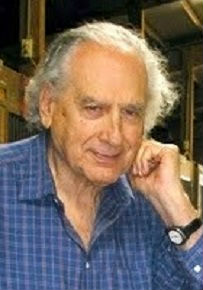
De Braziliaanse schrijver Joaquim Maria Machado de Assis werd geboren in Rio de Janeiro op 21 juni 1839. Zie ook alle tags voor Machado de Assis op dit blog.
Uit: The Posthumous Memoirs of Brás Cubas (Vertaald door Gregory Rabassa)
“Now that I’ve mentioned my two uncles, let me make a short genealogical outline here.
The
founder of my family was a certain Damiao Cubas, who flourished in the
first half of the eighteenth century. He was a cooper by trade, a native
of Rio de Janeiro, where he would have died in penury and obscurity had
he limited himself to the work of barrel-making. But he didn’t. He
became a farmer. He planted, harvested, and exchanged his produce for
good, honest silver patacas until he died, leaving a nice fat
inheritance to a son, the licentiate Luis Cubas. It was with this young
man that my series of grandfathers really begins–the grandfathers my
family always admitted to–because Damiao Cubas was, after all, a
cooper, and perhaps even a bad cooper, while Luis Cubas studied at
Coimbra, was conspicuous in affairs of state, and was a personal friend
of the viceroy, Count da Cunha.
Since
the surname Cubas, meaning kegs, smelled too much of cooperage, my
father, Damiao’s great-grandson, alleged that the aforesaid surname had
been given to a knight, a hero of the African campaigns, as a reward for
a deed he brought off: the capture of three hundred barrels from the
Moors. My father was a man of imagination; he flew out of the cooperage
on the wings of a pun. He was a good character, my father, a worthy and
loyal man like few others. He had a touch of the fibber about him, it’s
true, but who in this world doesn’t have a bit of that? It should be
noted that he never had recourse to invention except after an attempt at
falsification. At first he had the family branch off from that famous
namesake of mine, Captain-Major Brás Cubas, who founded the town of Sao
Vicente, where he died in 1592, and that’s why he named me Brás. The
captain-major’s family refuted him, however, and that was when he
imagined the three hundred Moorish kegs.
A
few members of my family are still alive, my niece Venancia, for
example, the lily of the valley, which is the flower for ladies of her
time. Her father, Cotrim, is still alive, a fellow who … But let’s not
get ahead of events. Let’s finish with our poultice once and for all.“
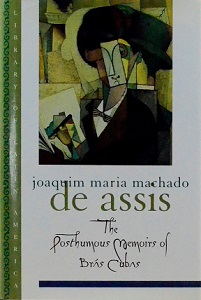
Cover
Zie voor nog meer schrijvers van de 21e juni ook mijn blog van 21 juni 2014 deel 1, en deel 2 en eveneens deel 3.

